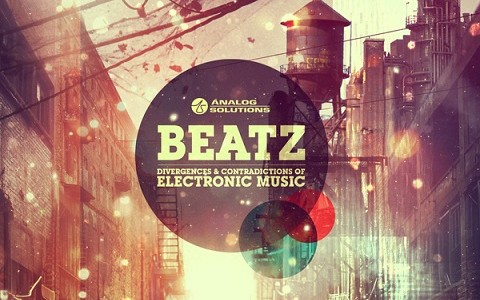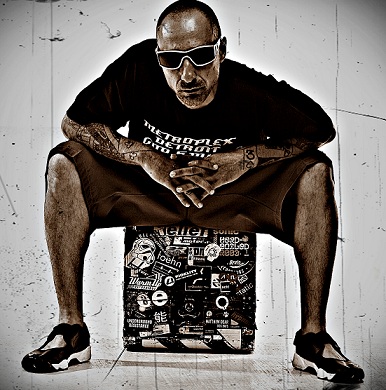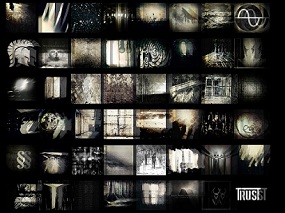Beatz _ Interview with Eduardo De La Calle
Involving 150 of the key players in the global Techno scene, De La Calle’s interesting new documentary examines the changing nature of Techno culture.
Most techno minded people already noticed it in the last couple of weeks, and if you didn’t then you know now; something big is in the making. And this time it’s not music, but about music.
Eduardo De La Calle, Spanish house and techno DJ and label owner of Analog Solutions, was one of the initiators of a documentary project about the status of the techno industry. He did that together with Vincent Livolsi, Iban Ugalde, Pedro Pantaleon and Daniel Arasanz. Without a budget, they’ve managed to do 150 interviews with some of the most important or interesting people in the scene about the scene; more than 160 DJ’s, producers, labels, magazines and others have been interviewed about what’s going on today in the rapidly changing world of electronic music.
Why? Because De La Calle is concerned.
Concerned about all the developments that are taking place currently in society and the reflection of that in the electronic music scene. Concerned about the underground mixing up with the mainstream and the loss of the ‘family feeling’ that was always so recognisable, but now seems to have disappeared. That’s the reason why ‘Beatz – Divergences & Contradictions of Electronic Music’ was made and why Subsekt Blog talked with this remarkable and friendly man about what’s going on.
Beatz – Divergences & Contradictions of Electronic Music from Analog Solutions Rec. on Vimeo.
GLOBAL SOCIETY
As a proponent of the analog process of making music, Eduardo De La Calle is already unique himself. His interviews are always very interesting to read because of the ‘radical’ view he has on the digital developments that take place these days and the loss of the analog basic principles of producing where it all started with in the 70’s and 80’s. But this is not the red line in his new documentary ‘Beatz’. ‘Beatz’ is more about the change of global society and the reflection of that in the electronic music scene.
‘Yes, someway, somehow, you see the reflection of global society in the electronic music scene nowadays. Because it’s quite difficult to grow up in this scene. There are more opportunities, more is possible, but that’s also the problem. It’s more important than ever to meet the right people at the right place to put down your music. Society has become more rough and the music is like that too at the moment. With my documentary I try to put them all back into a unity, with ‘Beatz’ I want to say: ‘This is OUR scene although the society has changed and mixed up a lot with a lot of egoism around.’ I want to show that the electronic music scene is still a unity although maybe a lot of guys in the scene forgot about that. I feel that things in life have their influence on the music scene.’
‘Because really, in the past you had this book ‘House Nation’. You could contact everyone with this book and every year you had a new version of the book. Now it’s totally the opposite, it’s not easy to find the right persons and get the right contacts. I feel that we’re not a unity anymore and in that respect we somehow lost the essence. Besides that everybody thinks that the DJ has a dream life, a life of drugs, partying, sex and well, okay… a bit of music too. Electronic music is becoming bigger and bigger, even Barack Obama launched a program ‘DJ’s for Obama’ during his re-election campaign. Problem of all of this is that the mainstream situation is mixing up with the underground scene. But the underground DJ should follow his principles and show the people where electronic music is really about.’
That’s clear. And that’s what Eduardo De La Calle will try to show and tell us in his documentary. More than 150 interviews and more than 2 years later the project is finally finished although there are still lots of people that want to be in the documentary now they’ve noticed where it’s all about.
‘In the beginning it was very difficult. We had bad reactions and I don’t know why. We did not get the necessary feedback we wanted but after a little while people got more and more interested and we got more and bigger opportunities. Now everybody wants to be in the documentary, but we really finished it now because we are really tired after more than two years of intensive work. It’s so much work to organize 150 interviews and try to get mixed information. In order to get that we had to manipulate the questions for all those artists and other people and that was a lot of work. But we are really happy with the result.’
DREAM COMING TRUE
In order to get this information De La Calle used his travels as a DJ to meet as many people in the scene, and also those in the background. With a small camera, some interview questions and his vinyl of course, De La Calle was running around Paris, Berlin, New York, Tokyo, Amsterdam, Ibiza and more places like that to get his interviews and information. A hell of a job when you realize that everything had to be done in the couple of days when he was playing and staying in every city. But beyond that, it was a dream come true for De La Calle.
‘It was somehow a dream coming true for me. I talked face 2 face with all the big names in the scene, all my heroes. I really have to admit that sometimes my emotions were on a top level when I met some of them and talked like twenty minutes or more with them about music in an intimate setting. It was a unique opportunity too to give them my records and get support for my productions.’
‘But it wasn’t only that. To have those interviews with all those people that are working everywhere around the world and doing all kinds of different things in the frontline or behind the scenes, that was the most interesting. To get all those different views on what is happening. In that respect we didn’t give a fuck about the fact if someone was a big name or not or the money that they earn. Some of them earn 20.000 dollar or more a month, some of them 600 dollar or less but what counts is their opinion. Besides that I sometimes had to act as a journalist and not as a DJ to get an interview. I had to keep my own personality in the shadow sometimes, be less radical, because this is an Analog Solutions production, and not an Eduardo De La Calle production.’
The crowdfunding action for ‘Beatz’ is going on at the moment and it’s now entering its last week. Their goal is to collect as much money as possible to get financial support for the documentary. The pre-production phase has already been finishing up, but there is more money needed to compensate the work and time spent by the editor and post-production technicians to finalize the project.
A project where artists such as Ben Klock, Laurent Garnier, Juan Atkins, Seth Troxler, Marcel Dettmann, Derrick May, Carl Cox, Luciano, Technasia and Blake Baxter are involved with is something not to be missed, so please visit the ‘Beatz’ campaign here:
http://www.indiegogo.com/
Words: Colin Kraan
Images: Daniel Lhanger & Analog Solution Archive




Daniel du Noy
Mar 25. 2013
This is some great read and watch! Thanks Colin!